Since its inception and first year of full operation in 2015, UKES has become well established among those institutions with a major focus on measuring and improving student engagement and understanding key areas within skills development. With 11,905 students taking part this year, UKES remains one of the largest undergraduate surveys in the UK higher education sector, despite participation in the 2020 and 2021 surveys being impacted by the Covid-19 pandemic. UKES offers us a comprehensive and detailed overview of key areas such as staff /student interaction, impacts of remote learning and factors linked to retention.
The authors note that:
- Student responses demonstrate that remote learning or a blended approach did not have a negative impact on the acquisition of skills, and in fact it enhanced multiple key skills in independent learning, time management and self-efficacy. Results highlighted that institutions may need to alter and adapt to ever changing teaching methods in HE, perhaps embedding blended or remote teaching modes.
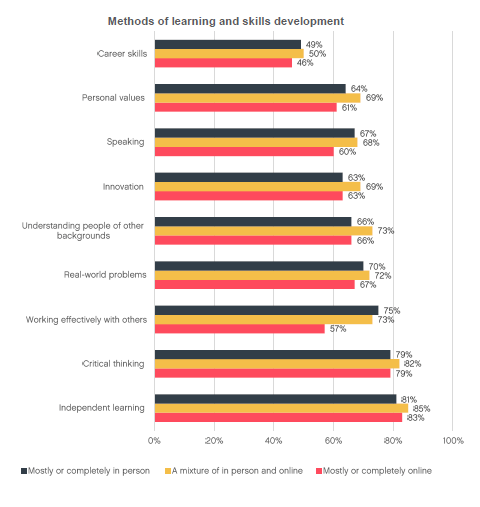
- Engagement among Black, Asian and Minority Ethnic students remained higher than for their white counterparts; reinforcing the importance of continuously striving to close the attainment gap across all disciplines, and implement strategies to offer continued support to this student group.
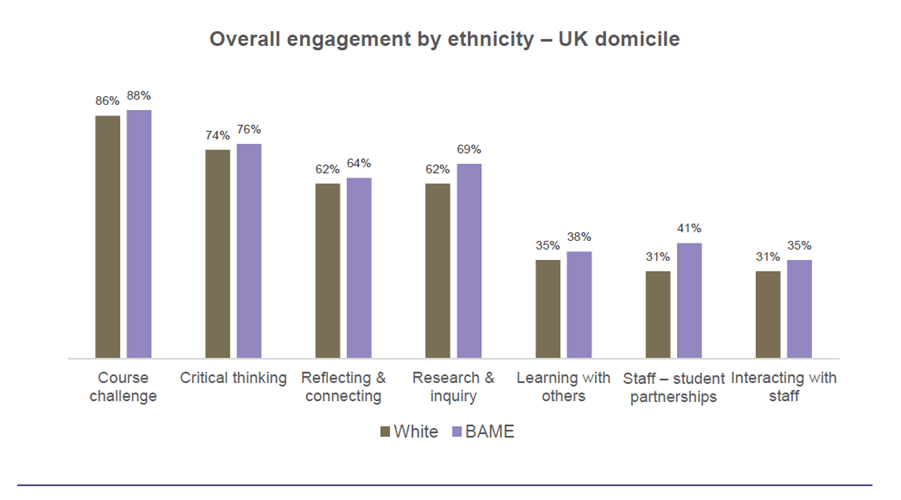
- The survey highlighted that universities should focus on raising engagement across disadvantaged groups such as disabled students and those from areas of low participation in HE. Universities should consider methods of delivery and engagement to ensure these student groups continue to have access to a full and holistic student experience.
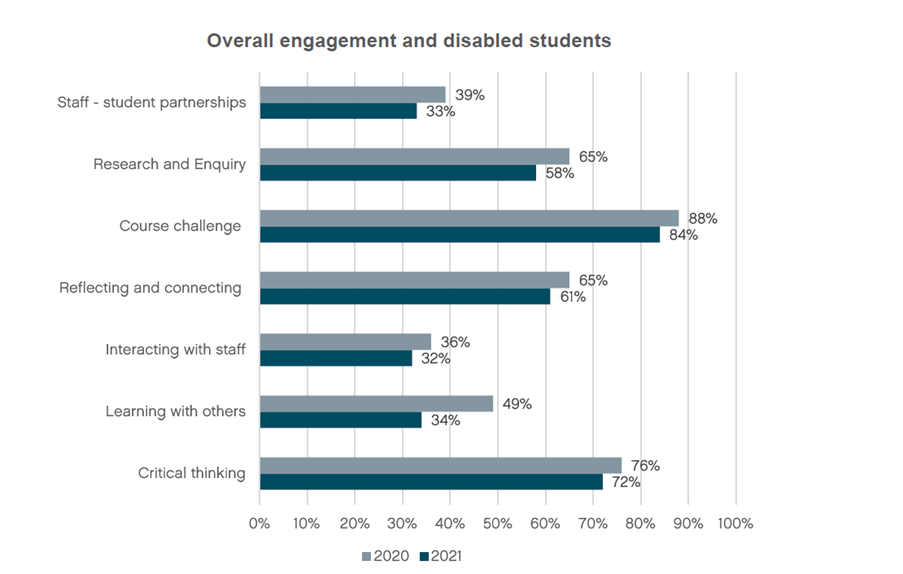
- Retention figures demonstrated in UKES have worsened since 2020, with 28% of participants – compared to 26.5% – considering leaving their course in the last academic year.
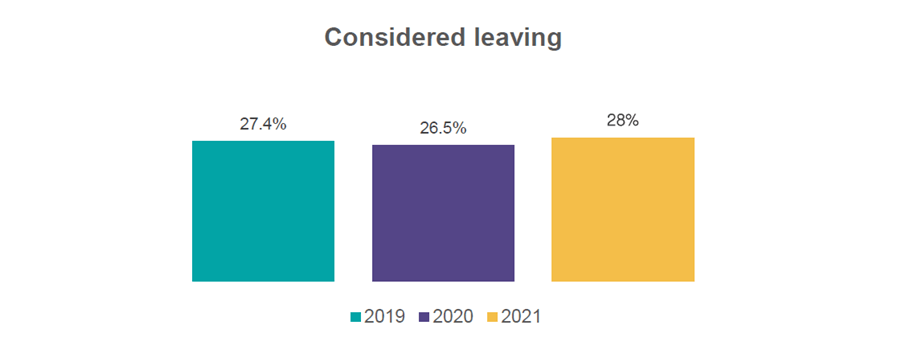
- Challenges with remote learning and isolation from peers and lecturers resulted in increased levels of mental health concerns.
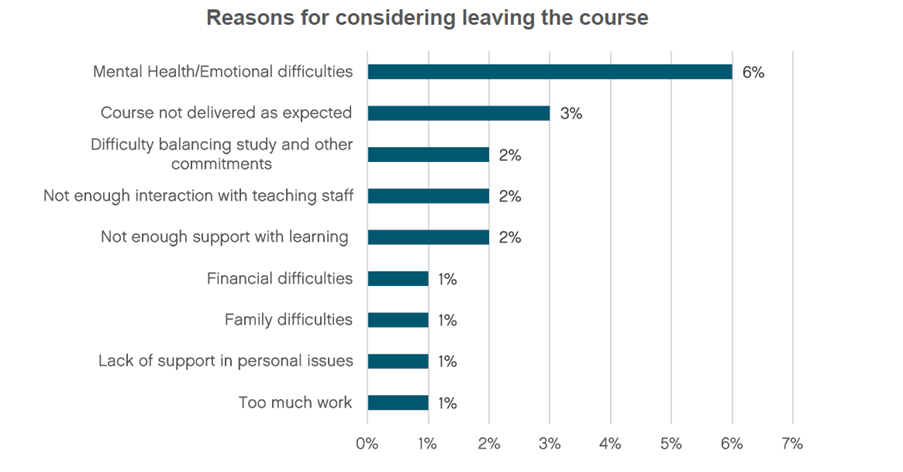
Report co-author, Anne Rowan, Advance HE Mixed Methods Researcher, said, “In many areas, students have fed-back positively about their engagement in the past year. However, the concerns about mental health are worryingly entrenched in student feedback across our surveys
“As institutions evaluate and plan engagement and Teaching & Learning as we continue to emerge from last year’s restrictions, then student mental health should be a key factor in that planning so that students enjoy educational environments where they all can thrive and reach their potential.”